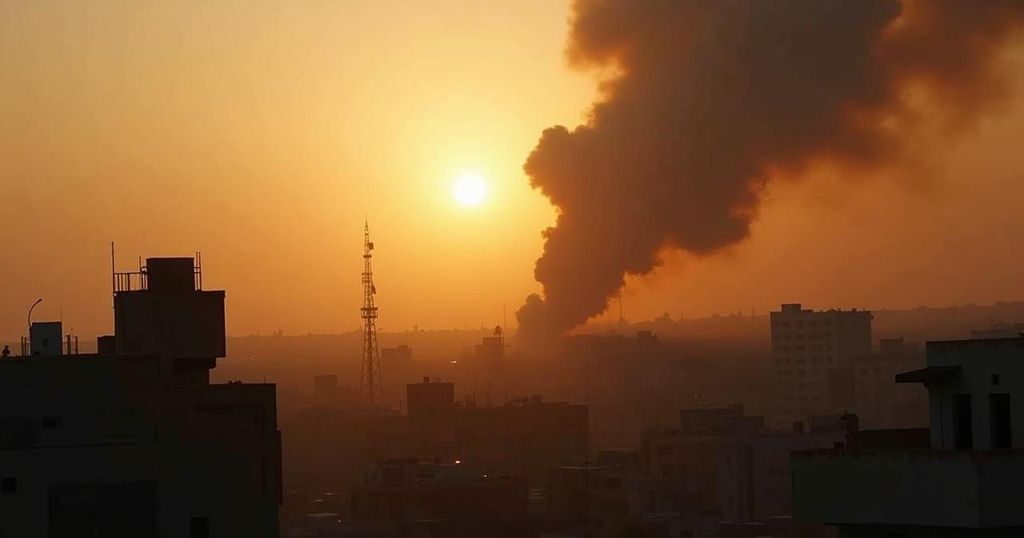Recent missile strikes from Iran targeting Israel have led to significant military responses from both nations, with Israel intercepting the majority of the attacks. U.S. support for Israel remains strong, while Iran claims its actions were defensive. The conflict has resulted in substantial casualties in Lebanon, highlighting the urgency of international engagement to address the escalating violence.
In a significant escalation of tensions, Iranian Prime Minister Benjamin Netanyahu has stated that Iran will be held accountable for its recent aggression involving the launch of over 180 ballistic missiles directed at Israel. Thanks to the combined efforts of Israeli defense systems and U.S. military support, the majority of these missiles were intercepted before causing significant harm. Iranian officials confidently asserted that their missiles achieved a 90 percent success rate in hitting military targets. U.S. President Joe Biden reaffirmed America’s unwavering support for Israel, characterizing the Iranian missile attack as largely ineffective and underscoring the capabilities of Israeli defense forces. Iran described its missile barrage as a defensive measure aimed at retaliating against Israeli operations that resulted in the deaths of militant leaders within its borders and in Lebanon. Iranian foreign minister Abbas Araqchi indicated that further attacks would depend on Israel’s provocations. The ongoing conflict has taken a severe toll, with Israeli attacks in Lebanon leading to at least fifty-five fatalities and injuring 156 others, according to reports from the Lebanese health ministry. In response, the U.N. Security Council has convened an emergency session to address the deteriorating situation in the region. In a further intensification, Israel’s former Prime Minister Naftali Bennett expressed that this conflict presents Israel with a historic opportunity to diminish Iran’s nuclear capabilities and its influence in the Middle East. Moreover, Hamas has vocally supported Iran’s actions, framing the missile strikes as a form of vengeance in light of recent casualties due to Israeli military actions. French President Emmanuel Macron condemned the Iranian assault on Israel, calling for the preservation of Lebanon’s sovereignty while offering military aid to Israel in this escalating conflict. Israel proceeded to conduct additional air raids in southern Beirut, which followed an already deadly episode of violence, prompting evacuation protocols across affected regions. Both Israel and the United States have pledged retaliatory measures against Iran, with Netanyahu asserting that Iran will face consequences for its actions. Plans for a coordinated response are in discussions, emphasizing the ongoing volatility and complexity of the situation in the region.
The current conflict between Iran and Israel is rooted in long-standing tensions, exacerbated by recent military confrontations and retaliatory strikes. Following a series of targeted killings attributed to Israeli forces, Iran launched a significant missile attack deemed as a response to these provocations. This development marks a pivotal moment in Middle Eastern geopolitics, with various nations, including the United States and Russia, closely monitoring the situation and expressing their positions on the ongoing violence. The U.N. Security Council’s involvement highlights the international community’s concern regarding the potential for escalated conflict in an already unstable region.
The situation between Iran and Israel has reached a critical juncture, characterized by mutual threats and military actions that risk further escalation of violence in the Middle East. The responses from both nations, alongside international reactions, reflect a complex landscape of geopolitical power struggles and the humanitarian impact of ongoing hostilities. Continued dialogues and interventions from global powers may be essential to prevent further exacerbation of the conflict and ensure stability in the region.
Original Source: www.hindustantimes.com






